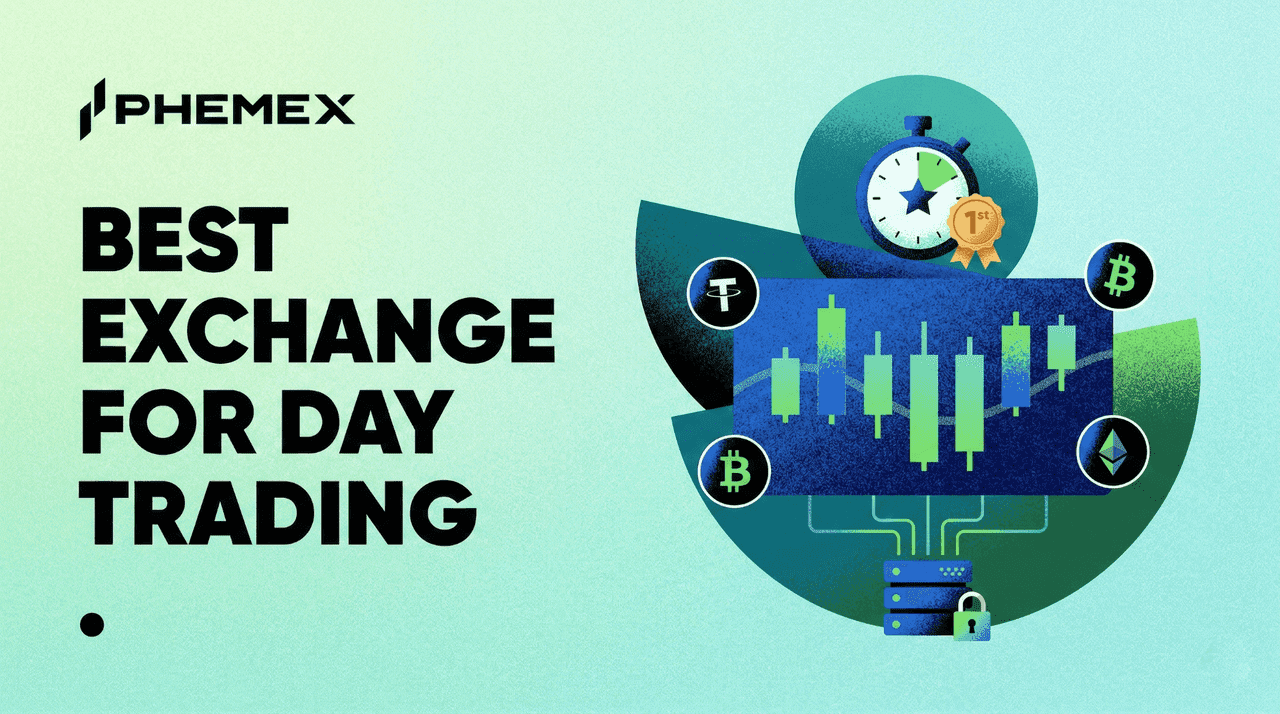Steps of Finding New Crypto Coins
Stay Updated with Crypto News and Trends:
To begin your journey in finding new market tokens, it's crucial to stay abreast of the latest developments in the crypto world. This involves regularly following crypto news websites, blogs, and forums, which are rich sources of up-to-date information. Subscribing to newsletters from reputable crypto analysis sites can provide deeper insights. Additionally, social media platforms like Twitter and Reddit are invaluable, as they are hubs where crypto communities actively discuss new projects and tokens. These platforms can offer real-time updates and community sentiments about emerging tokens.
Participate in Crypto Communities:
Engaging with crypto communities is a significant step in discovering new market tokens. Joining groups and forums on platforms like Reddit, Discord, and Telegram puts you in direct contact with fellow crypto enthusiasts and experts. Participation in these communities allows you to engage in discussions, ask for recommendations on new tokens and projects, and gain insights from diverse perspectives. Furthermore, attending webinars, online meetups, and virtual conferences focused on cryptocurrency can enhance your understanding and expose you to new investment opportunities.
Explore Initial Coin Offerings (ICOs) and Token Sales:
Keeping an eye on Initial Coin Offerings (ICOs) and token sales is a direct method to access new crypto tokens. Platforms like CoinMarketCap, ICO Bench, or CoinGecko list upcoming ICOs and token sales, providing a consolidated view of potential investment opportunities. Before investing, it’s essential to research the project's goals, team, technology, and whitepaper thoroughly. Understanding the tokenomics, including the token’s supply, distribution, and utility, is critical for evaluating the potential success of the project.
Use Crypto Exchanges and Decentralized Exchanges (DEXs):
Regular checks on listings in both centralized and decentralized exchanges can reveal new market tokens early in their lifecycle. Smaller and newer exchanges often list new tokens before they hit the mainstream market. Decentralized exchanges (DEXs) like Uniswap or SushiSwap are particularly useful for finding tokens that might not yet be available on larger exchanges. These platforms can be gateways to unique and less-known crypto assets.
Leverage Token Discovery Tools and Platforms:
Utilizing token discovery tools and platforms can significantly aid in finding new market tokens. Tools like DEXTools or Poocoin are designed to help users discover new tokens on DEXs. Additionally, platforms like Token Sniffer are valuable for identifying newly created tokens, providing quick audits to assess their legitimacy and potential.
Conduct Thorough Research:
Thorough research is the backbone of successful crypto investing. Investigate each project's use case, market potential, and competition. Analyzing the team's background and track record can offer insights into the project's credibility. Always approach new tokens with caution and conduct due diligence to verify the legitimacy of the project, thereby avoiding scams and unreliable ventures.
Monitor Airdrops and Bounty Programs:
Airdrops and bounty programs are often used by new projects to generate interest and distribute tokens. Participating in these can be a way to acquire new tokens for free or as a reward for promoting the project or completing certain tasks. Keeping track of such opportunities can be a lucrative way of accumulating new tokens.
For example, Phemex had multiple airdrop opportunities for its Phemex Token in late 2023, where users could win PT for free just by participating in Phemex Web3 promotions.
Engage with Blockchain Analytics:
Blockchain analytics tools are instrumental in spotting trends in token movements and trading patterns. Utilizing platforms like Dune Analytics or Nansen can provide detailed insights into smart money activities and emerging tokens, offering a data-driven approach to discovering new market opportunities.
Learn from the Community and Thought Leaders:
Following crypto influencers, analysts, and thought leaders can provide valuable insights into new and upcoming projects. These individuals often share their knowledge and predictions about the market, but it's important to be aware of potential biases and always cross-reference their information with other sources.
Risk Management:Investing in new market tokens carries inherent risks due to their speculative nature. It's vital to only invest what you can afford to lose and consider diversifying your crypto portfolio to mitigate risks. Being cautious and informed can help navigate the volatile crypto market effectively.
Where to find it?
Before being listed on traditional exchanges, new crypto coins are often introduced through Initial Coin Offerings (ICOs), Initial Exchange Offerings (IEOs), or Initial Dex Offerings (IDOs). These platforms provide early investment opportunities in major projects, allowing investors to buy into them before they gain mainstream attention.
To assist in finding these opportunities, several platforms offer detailed information on upcoming crypto projects:
Top ICO List
This platform offers extensive lists and details about ICOs, including white papers, enabling investors to evaluate and compare the potential of new crypto coins.
CoinGecko
A comprehensive tool for traders and investors, CoinGecko tracks real-time prices from various exchanges and provides key information about different cryptocurrencies, including historical performance, community insights, and ICO listings.
CoinMarketCap
Similar to CoinGecko, CoinMarketCap provides lists of ICOs and extensive data on numerous crypto projects, along with a watchlist feature to gauge investor interest.
ICO Bench
Leveraging crowdsourced ratings from crypto experts, ICO Bench offers a grading system for ICOs, helping users assess new crypto coins based on diverse parameters.
Token Metrics
Combining in-depth research and AI, Token Metrics is a resourceful platform for evaluating new cryptocurrencies, offering tools to determine the viability and potential of newly discovered projects.
With a vast array of over 10,000 crypto coins available, the market is ripe with opportunities. However, it's crucial to carefully navigate this space due to the presence of unreliable platforms and projects. Utilizing these resources can aid investors in identifying promising crypto projects with potential for growth and viability.
Evaluating the Best Crypto Projects
Evaluating a new crypto project effectively begins with a thorough analysis of its whitepaper, which is a critical document outlining the project's core aspects. Key elements to scrutinize in a whitepaper include:
Use Case
Assess the primary problem or unique function the project addresses. For instance, many Layer 2 projects focus on enhancing blockchain efficiency and security without compromising decentralized principles.
Tokenomics
Understand the token distribution strategy, including allocation to the founding team, advisors, community, and treasury. Also, evaluate whether the token is deflationary or inflationary and its supply limits.
Lock-up Period
Check the duration during which the founding team's tokens are locked. A longer lock-up period typically signifies a commitment to the project's long-term success.
Founding Team
Investigate the team's background for experience, alignment with the project's goals, and any history of fraudulent activities. The credibility of advisors and investors can also provide insights into the project's legitimacy.
Social Virality and Community Engagement
Active engagement on social media platforms like Twitter, Telegram, and Discord can reflect the project's popularity and community support, which are vital for decentralized projects.
Roadmap
Analyze the roadmap for its detailed plans and timelines. The progress made against this roadmap can be indicative of the project's dedication and future potential.
Market Watchlists
The number of people tracking the project on platforms like CoinMarketCap or CoinGecko can serve as an additional indicator of its market interest and potential viability.
Ways to Earn/Purchase before listing token
Launchpad:
In the world of cryptocurrency exchanges, the concept of a Launchpad has gained significant traction, especially since its introduction by Binance. A Launchpad acts as a token sale platform hosted by the exchange. It typically requires users to hold a certain amount of the exchange's native token, such as BNB in the case of Binance, to participate. Eligible users are then offered the opportunity to purchase new tokens at a pre-determined price before these tokens are officially listed on the exchange. The sale of tokens through this platform is often termed an Initial Exchange Offering (IEO), marking a distinct phase before the token becomes publicly tradable on the exchange platform.
Launchpool:
Parallel to the concept of Launchpad, Launchpool represents another innovative approach within cryptocurrency exchanges. Functioning as a staking platform, Launchpool allows users to earn new tokens by staking their existing coins, like BNB or stablecoins. This facility is particularly aimed at new crypto projects, offering users a way to acquire tokens from these projects.
In this context, the Phemex Launchpool emerges as a standout example of such a platform. Seamlessly integrating with the Phemex exchange, it enables users to stake their assets and earn tokens from emerging crypto projects. The unique aspect of Phemex Launchpool is that the new tokens earned through staking are often listed on the Phemex exchange soon after the end of the staking program. This integration provides a fluid transition for users to engage with new cryptocurrencies, thereby enhancing the overall user experience within the Phemex ecosystem and the broader crypto economy.
Key factors of consider new cryptocurrency
Cryptocurrencies, beyond their complex technicalities, are essentially digital assets serving various functions, ranging from payment methods like Bitcoin to utility tokens like Ethereum's ether (ETH), which facilitates actions on its blockchain. Ethereum, known for its scalability and potential for future development, is pivotal in the DeFi space and is continually evolving with new utility tokens.
When evaluating cryptocurrencies to avoid 'rug pulls' – scams where developers abandon a project after collecting funds – certain factors and tools are essential:
Use Cases:
Assess the practical applications of a cryptocurrency. For example, ETH is used for transactions and as 'gas' for executing operations on Ethereum's blockchain, making it a valuable asset in the DeFi ecosystem.
Liquidity:
Ensure the cryptocurrency has enough trading volume for easy selling. A lack of liquidity might suggest low investor interest or potential risks.
Value Assessment:
Consider both tangible and intangible values of a cryptocurrency. This could include personal resonance with a token, like NFTs that evoke personal memories.
Price and Adoption Prospects:
Lower-priced tokens can be more accessible for average investors, and the potential for widespread adoption is a key indicator of a cryptocurrency's future success.
Supply Limits:
Be aware of the maximum supply of a cryptocurrency, as a reached limit can affect its availability and value.
Market Dynamics:
Regularly monitor the price and trading volume of cryptocurrencies to gauge market interest and momentum.
Despite the tools available, investors should be cautious, as even leading platforms like CoinMarketCap can encounter data inaccuracies. Investment decisions should be informed by a comprehensive understanding of a cryptocurrency's purpose, market dynamics, and potential for growth.
Ways to avoid crypto scams
Do Your Homework:
- Research thoroughly before buying cryptocurrencies (eg. check their LinkedIn profiles, if the company account or staff accounts are new, high chance it is a scam)
- Understand the history, creators, technology, uniqueness, total supply, and added value of the coins.
- Avoid coins created for founders' profit.
- Use secure, reputable websites for crypto purchases.
Be Careful Who You Trust:
- Avoid taking advice from celebrities, social media, internet forums, or unverified sources without solid financial credentials.
- Choose wallets from reputable companies.
- Never share wallet credentials.
- Avoid using public wifi for wallet access.
- Use two-factor authentication and password-protect your devices.
- Consider using multiple wallets and cold storage for extra security.
Use Multi-Factor Authentication:
- Protect accounts with multi-factor authentication to prevent unauthorized access, even if login credentials are compromised.
Monitor Website URLs:
- Ensure website authenticity and security (look for 'https' in URLs) before logging in to avoid spoofed websites.
Crypto Exposure through Traditional Investments:
- Consider investing in ETFs related to crypto or stocks in crypto-impacted companies for a safer, more regulated investment experience.









